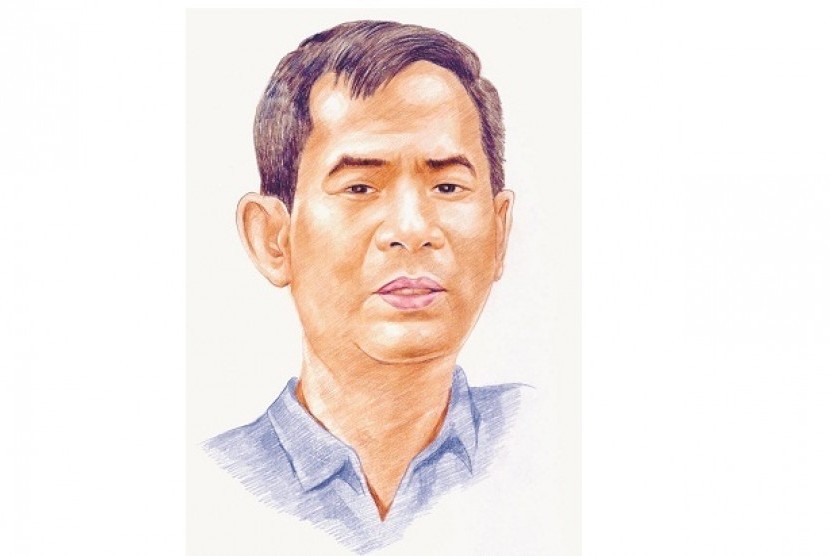By Nasihin Masha
Once, a chief economist of a giant company in Indonesia said that Parliament plenary session’s decision about fuel on March 31, 2012 as a “disastrous decision”. According to him, as a result of this fickle decision, Indonesia’s economic growth could be restrained on 6.2 percent. Inflation has also been confirmed up.
This all happened because of the swelling subsidies and reduced development expenses as well as the rising prices. On the other hand, government’s inconsistency on addressing world oil price made this issue a political commodity. Government also never could make a firm decision to minimize fuel price rise.
Subsidies have been added to IDR 5 billion per month. Such a huge numbers! This fuel issue actually was just a small problem compared to other strategic issues. But, this small problem could not be solved due to this country’s elite attitude. Everything was just calculated for the sake of political power. Not the politics of state or politics of nation.
Whereas optimism is right before our eyes. Let us see these indicators: the world’s fourth largest population, abundant natural resources, the world’s 16th largest GDP, a country with high and consistent economic growth of around 6.5 percent, average population age of 27 year old, and the growth of middle class around 7 million per year.
Macro economics indicators, such as foreign exchange reserves, rupiah exchange rate, and stock price index also show optimism. Indonesia is like a beautiful lady in the middle of world economic downfall. Other countries state leaders are expecting to be helped economically if they had business with Indonesia.
But, a ticklish question was asked by New Zealand Prime Minister, John Key, who recently visited. When he talked to the businessmen, he asked, “Where is Indonesia’s position on global market constellation?” Seemed like a common question, but it was not an easy one to answer.
There was MP3EI which been initiated by Hatta Rajasa. But that strategic program was more to inward looking, domestic orientation. It has not yet putting Indonesia to global context. MP3EI was more into solving Indonesia’s problem on growing Indonesia’s economy.
The emphasis was to solve, provide and connect the infrastructures, enlarged by building economic area base and types of industry. Certainly is unfortunate if Indonesia was only known as a country rich in natural resources, had a large domestic market, and provider of low level migrant workers. Of course what Mr John Key meant was with such a good economic growth, Indonesia must hold a unique economic position so it can drew the world. Not just to survive from crisis because of those three factors.
As a comparison, South Korea was a country that could put itself in global context. In the early development, this country was even poorer than Indonesia. As a start they built the villages, infrastructures, and basic industries. Those programs were summarized into Saemaeul Undong (1960).
The country lacked of iron ores has built steel industry since the beginning. This was the plan to be an industrial country in the future. After that, they built electronic and vehicle industries. Now, our home has been filled with South Korea’s commodities: air conditioner, water pump, television, computer, fan and car.
Not a long time ago, our houses were still filled with Japanese commodities. Now, Korea was even more advanced in IT industry. Samsung is competing with Apple for gadgets. Also following was Microsoft on software market. Fujitsu from Japan has now left far behind.
But, Korea has realized its economic growth from those industries nearly came to the maximum point, only 4 percent growth. This was a danger alert. First alternative was to unite two Koreas. The objectives were to expand the market and grab low wage labours. But this was not an easy task. Therefore, Korea launched “Green Growth” (2008) program, with expanding its culture industry as one of its mean.
They called it “Green Growth” as “Saemaeul Undong II”. As we know, Korean fever has swept the world since the 2000’s. But now, it is even bigger. Movies, fashion, music, culinary, travel, plastic surgery, medical services and their derivatives have become Korea’s foreign exchange earner.
Last year, Korea’s foreign exchange income was predicted to reach 4.2 billion USD. If we come to Seoul, we will feel the country’s pop fever. Shoes, bags, clothes, so full of colour like the candy colours. Those were not grown as such, but were programmed by the government. This was the politics of state not politics of power. This was what Mr John Key meant. Well, instead we were hit by a disastrous decision, Mr John Key.
(Indira Amaranti)



